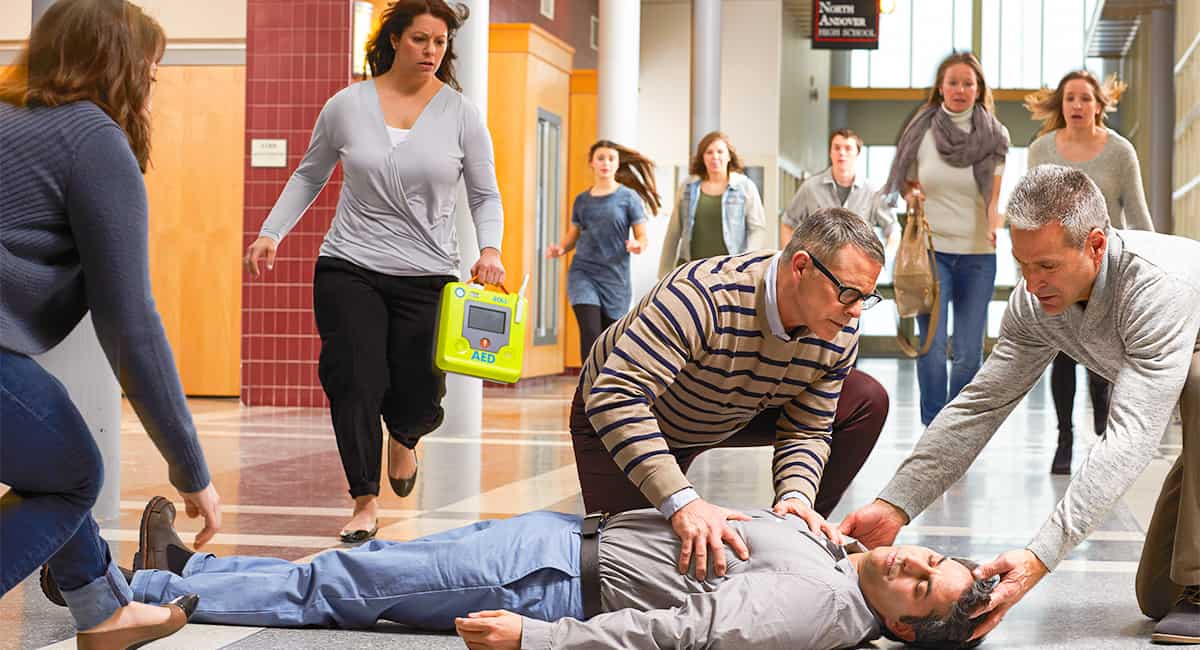
A new national campaign to scrap the ‘Heart Restart Tax’ is calling on the Government to remove the VAT levied on defibrillators to widen access in public spaces and save lives.
Defibrillators are used to restart a person’s heart in the event of a sudden cardiac arrest. Early treatment can increase survival rates to as high as 70% if defibrillation is given within three to five minutes of collapse. Look at our AEDs and CPR equipment to purchase a live saving device today.

Supported by members of parliament, patients and the British Healthcare Trades Association (BHTA), the group calls for better access for businesses and community groups to these lifesaving devices also known as automated external defibrillators (AEDs). Currently, only AEDs purchased by or donated to specific charities, local authorities and the NHS are exempt from VAT. This means the Heart Restart Tax is increasing the cost of defibrillator purchases for community groups, charities, small businesses and other organisations.
In 2022, the Irish Government announced that VAT rates on defibrillators would be removed from January 2023, a measure designed to save lives and reduce pressure on healthcare services. The British Healthcare Trades Association are leading the campaign and believe that scrapping the Heart Restart Tax in the UK will be an important step to achieving similar results.
19-year-old Jack Hurley, a sports student at Loughborough University, collapsed while playing football in June at North Kilworth FC. Luckily an opposition player had been first aid trained and recognised what he knew to be a cardiac arrest, and a defibrillator was crucially kept 50 yards away at the club house.
Jack said:
“I just remember passing the ball then waking up two days later in hospital. What happened to me could happen to anyone. It doesn’t matter if you’re young and play sport all the time. The chances of surviving an out of hospital cardiac arrest are just shocking so as a country we must improve this.”
David Stockdale, Chief Executive of the British Healthcare Trades Association, said:
“The lifesaving potential of defibrillator is well documented, so it’s astonishing that these vital devices continue to be treated – at least in tax terms – as secondary to other medical products and treatments. Almost three quarters of cardiac arrests happen in the home or a workplace and half of all out-of-hospital cardiac arrests are witnessed by a bystander. Despite this, public access defibrillators are used in less than 1 in 10 instances – there simply is not enough defibrillators on our streets, in our offices and our community spaces. The case for scrapping this ‘heart restart’ tax is irrefutable and it’s high time the Chancellor takes action.”
John Healey, Labour MP for Wentworth and Dearne said:
“It’s great that defibrillators are becoming more readily available to help people in an emergency, but local organisations and charities are facing an extra cost when they look to purchase a unit for their community.
“The majority of defibrillators bought by these groups face a 20% VAT charge on top of the units they buy – that’s around an extra £200 each time. This is a tax on saving lives. Defibrillators bought for use by community groups, charities and sports clubs should be VAT exempt to make them more affordable and help to save more lives across the country.”
Caroline Dinenage, Conservative MP for Gosport said:
“Making defibrillators more affordable is a simple and effective way to save lives. By helping every small business, community group, and sports club to afford one, we will be one step closer to ensuring every person suffering from cardiac arrest can be moments away from crucial life-saving treatment.”
Grahame Morris, Labour MP for Easington said:
“Every second counts when it comes to a cardiac arrest. Better access to defibrillator equipment makes every bystander a potential lifesaver. I am urging the Government to listen to this campaign. This is a very simple solution to increase access to defibrillators and empower our communities and public spaces with the tools to save lives.”
Read our other blogs for more information on first aid or contact us for further advice and information on our courses.
About the author:
Jo Stokes is a writer, marketer and trained first aider at Safety First Aid.
